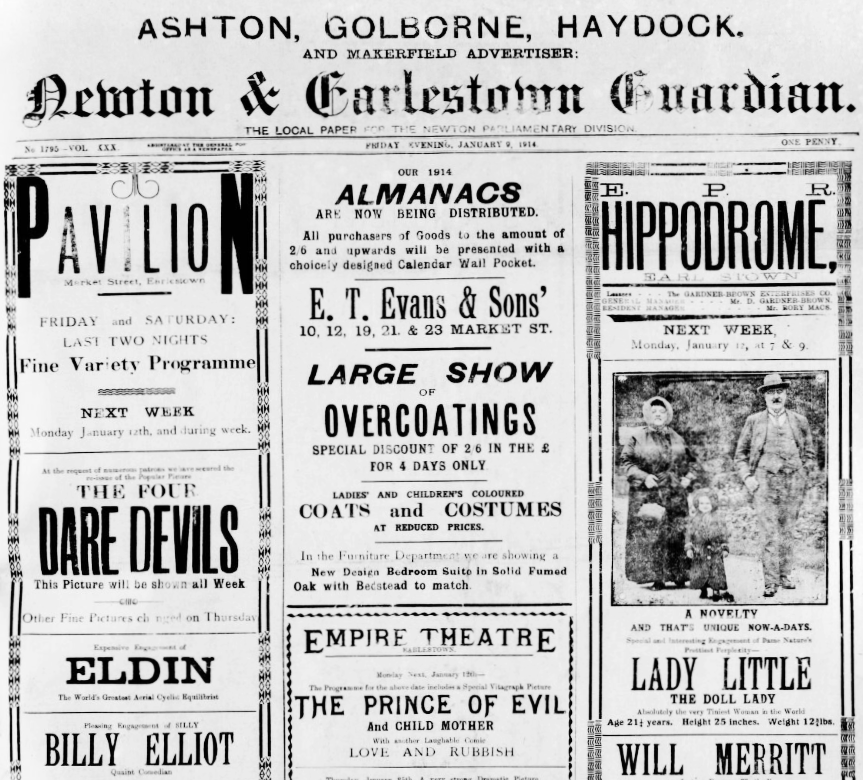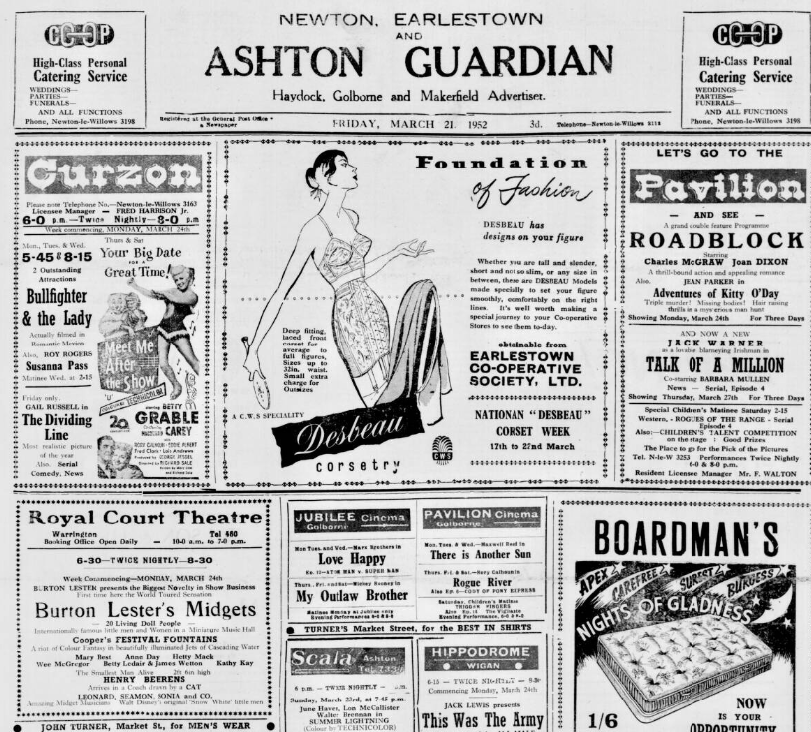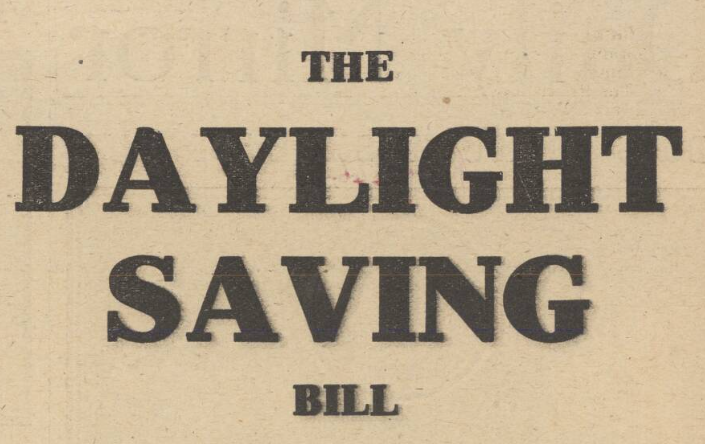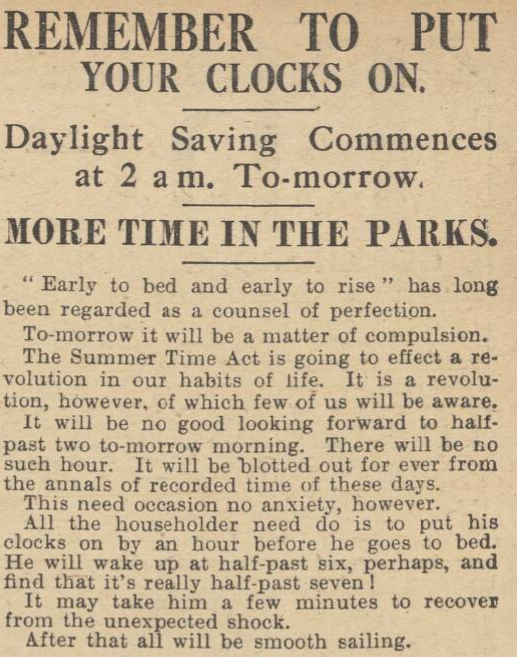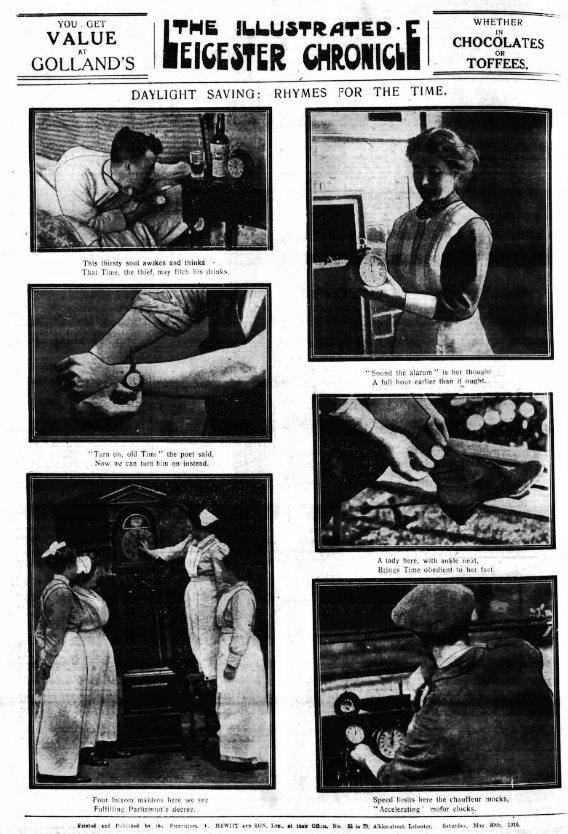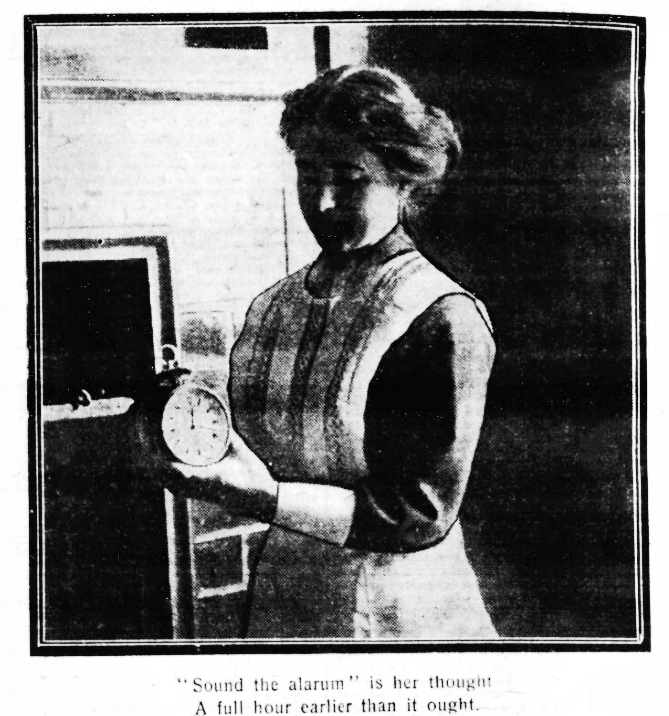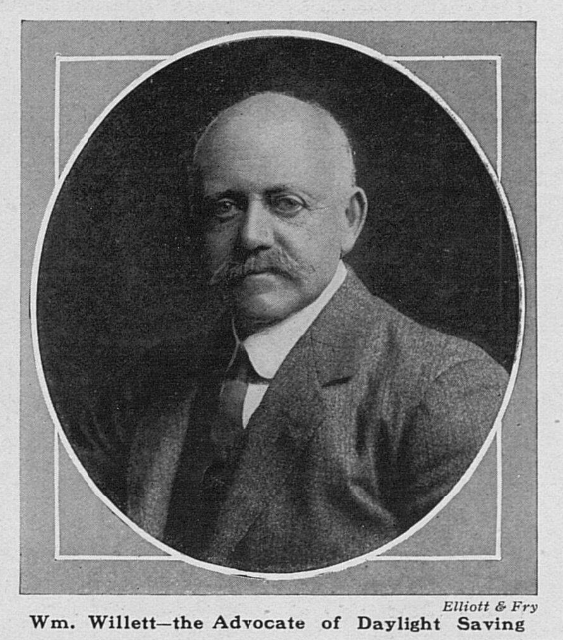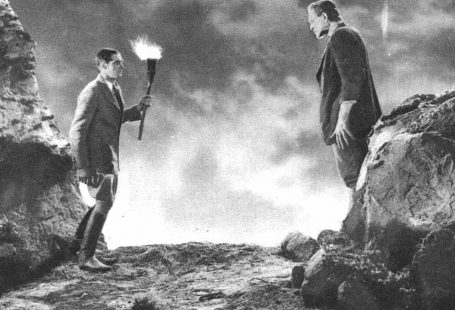This week at The Archive we’re marking 108 years since daylight saving time was introduced in the United Kingdom, as we welcome 358,368 brand new pages to our collection. We’re delighted to introduce one brand new newspaper to our holdings too this week, which is the Newton and Earlestown Guardian, alongside updates to 30 of our existing titles.
From Coleraine to Cumbernauld, from Fife to Fleetwood, from Leven to Louth, we’ve added new pages to titles from across England, Scotland and Northern Ireland. So read on to discover more about our new and updated titles of the week, as well as to learn more about the introduction of daylight saving on 21 May 1916.
Register now and explore the Archive
Before we take a look at daylight saving, and how it was introduced as part of the UK’s Defence of the Realm Act during the First World War, we’re delighted to introduce the Newton and Earlestown Guardian to our collection of newspapers. Published in the market town of Newton-le-Willows (also known as Newton in Makerfield), this newspaper traces its origins back to the Earlestown Guardian, which was established in 1880.
This penny Liberal newspaper served the Lancashire town of Earlestown, later becoming the Newton and Earlestown Guardian to serve both Earlestown and Newton-le-Willows. Both towns are now part of the Metropolitan Borough of St Helens, Merseyside, and are in the boundaries of the historic county of Lancashire. By 1914 the Newton and Earlestown Guardian was dubbing itself the ‘Local Paper for the Newton Parliamentary Division,’ with the subheading of the Ashton, Golborne, Haydock, and Makerfield Advertiser.
Filling eight pages, this lively title often eschewed news to focus on special interest topics. The Newton and Earlestown Guardian published sections devoted to ‘Dressmaking at Home,’ ‘Poultry Keeping,’ and ‘Hints for the Home,’ all often accompanied by illustrations. The newspaper also featured an extensive ‘What the Doctor Says’ section, which included medical advice and answers to correspondents.
Alongside such topics, the Newton paper published serialised fiction, a Bible study, and even a history of the town. The Newton and Earlestown Guardian did, however, publish some local news, with reports on deaths of notable residents, society presentations, and crime in the area, as well as notices of births, marriages and deaths. Meanwhile, the paper printed a ‘London Letter,’ alongside some national and international news items.
By the 21st century Newton-le-Willows had a number of newspapers, of which the Newton and Earleston Guardian, now known as the Newton and Golborne Guardian, was the oldest. It sadly ceased publication in 2017.
That may be it from our new title of the week, but before we move onto our look at the introduction of daylight saving in the UK, we wanted to highlight a few of our updated titles for you this week. We have something of a Lancashire lean this week, with over 40,000 brand new pages joining the Fleetwood Weekly News, whilst over 34,000 brand new pages join the Morecambe Visitor. Following not too far behind is Yorkshire’s Ripon Gazette with over 21,000 brand new pages joining its ranks.
Meanwhile, this week sees updates to seven of our Scottish titles, with the likes of the Cumbernauld News, the Dalkeith Advertiser and the Leven Mail all seeing new pages. We’ve also updated six of our titles from Northern Ireland, with new pages joining titles like the Coleraine Times, the Newtownabbey Times and East Antrim Times, and the Ulster Star.
May 1916 – The Introduction of Daylight Saving
This week 108 years ago marks the introduction of daylight saving in the United Kingdom. Instituted under the powers of the Defence of the Realm Act (D.O.R.A.), the measure was implemented to make better use of the daylight hours. The main need for this was to preserve supplies of coal in order to aid the war effort, meaning that there was less requirement for coal powered lighting in the evenings.
Now known as British Summer Time (B.S.T.), one of the main advocates of daylight saving was farmer William Willett, who penned a work called ‘The Waste of Daylight.’ Sadly, Willett passed away a year before the scheme he had supported came into effect, although his contribution was marked by newspapers at the time.
Our new newspaper this week, the Newton and Earlestown Guardian, chronicles the introduction of daylight saving time in the UK in May 1916. Following the measure’s implementation on 21 May 1916, on 26 May 1916 the newspaper’s ‘Observer’ penned how ‘the Daylight Saving Bill came into operation locally on Sunday without causing much inconvenience to anybody.’
However, some of their friends were put to a minor inconvenience by the time change, ‘Observer’ relating how:
I heard my Catholic friends were somewhat nonplussed when they went to the first morning Mass according to the usual hour, but by summer time, and found the clock, so far as their church was concerned, had not been put on. They were thus an hour too soon. That little mistake has now been put right.
The writer went on to relate how the 21 May 1916 was actually ‘one of the lightest and brightest days we have had for a long time,’ although there was a ‘dash of lightning in the afternoon storm.’ And as to the response to daylight saving, there were apparently ‘some brave people [who] said brave things they would never do,’ but at the end of the day complied. That was apart from one ‘country parson who refused to put his clock forward and had no congregation at his morning service.’
Elsewhere in the 26 May 1916 edition of the Newton and Earlestown Guardian we learn of more responses to the daylight saving measures. The ‘London Letter‘ reported how:
It has been a very simple matter after all. Considering the matter beforehand one imagined all sorts of difficulties and complications involved in putting everything forward by one hour. But from all one can learn, nobody has been put to any trouble at all, except those whose duty it was to sit up to make the necessary alteration in the time of public clocks.
Indeed, for the writer of this piece, daylight saving was an incredibly positive thing, as they noted how ‘when one thinks of the enormous economies and the benefit to the public health which must follow from the adoption of ‘summer time,’ one may fairly say that never were such beneficial and far-reaching results achieved so simply and easily.’
Despite ‘breakfast on the first morning…seem[ing] rather early,’ by lunchtime the ‘new time had already become the normal condition of affairs.’ The writer paints a rather joyous picture of London on 21 May as daylight saving took effect, whilst they remembered to thank William Willett for his contribution to the innovation:
…in the evening there was the priceless boon of an extra hour of daylight. Thousands of people in the parks on that first night had hearts full of gratitude to Mr. Willett, the inventor of the daylight saving idea, who did not live to see his proposal enthusiastically acclaimed.
Find out more about daylight saving, life on the home front in Britain during the First World War, and much more besides, in the pages of our Archive today.
New Titles
| Title | Years Added |
| Newton and Earlestown Guardian | 1914-1919, 1923, 1931-1945, 1952 |
Updated Titles
This week we have updated 30 of our existing titles.
You can learn more about each of the titles we add to every week by clicking on their names. On each paper’s title page, you can read a FREE sample issue, learn more about our current holdings, and our plans for digitisation.
You can keep up to date with all the latest additions by visiting the recently added page. You can even look ahead to see what we’re going to add tomorrow.


